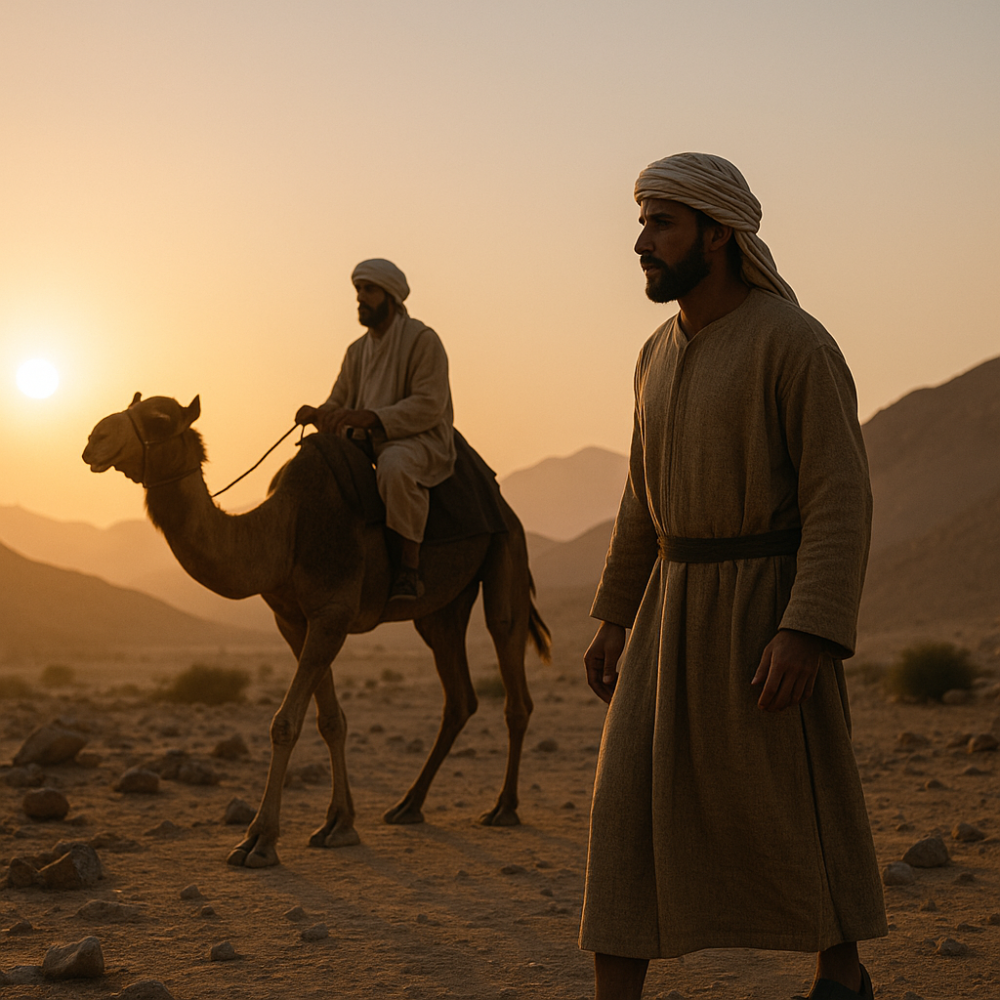Reflecting on the meanings of the Prophet's blessed migration at the beginning of each new lunar year leads us to reflect on the profound significance of this event, which occurred more than 1,400 years ago, and to draw from it broad guidelines that should serve as a beacon in the life of every Muslim.
It is incumbent upon us to tell the children of this nation about that great, luminous journey that was the reason for the light of guidance to shine upon humanity. Let us tell them the story of the two companions fleeing from the oppression of their families, the darkness of polytheism, the subjugation of their tribe, and the tyranny of falsehood, when our noble Prophet, may God bless him and grant him peace, set out with his companion and friend of this nation. They set out sad, fearful, and anticipating, possessing nothing of the worldly provisions or equipment, except their faith in God Almighty and their determination to fulfill the great message.
And whenever their strength fails, they prove themselves by remembering that God is with them: “Do not be sad, God is with us,” just as Moses, peace be upon him, said when the crisis intensified and defeat loomed: “Indeed, my Lord is with me; He will guide me.”
How much we need to repeat these stories to our children, introduce them to these faithful role models, and extract their implications, wisdom, and beautiful meanings. Let us tell them the stories of the migration of the Companions, may God be pleased with them all. These are stories that should not be confined to school curricula and reading and history lessons. Rather, every educator should narrate them to their children, taking advantage of the opportunity of the beginning of the year to review them and recall essential life values .
It is important for every Muslim child to know that Muslims did not have their own calendar before the seventeenth year of the Hijra. The credit for establishing it goes to Caliph Umar ibn al-Khattab (may Allah be pleased with him). He received a letter from one of his governors, Abu Musa al-Ash'ari , in which he stated that he was confused when receiving letters and did not know which year an event occurred. Caliph Umar immediately began consulting and seeking solutions, responding to the request, "Make for us a calendar as they have one." He ordered the creation of a calendar for Muslims, naming it after the most important event that marked a turning point in the history of Islam: the Prophet's Hijra .
He chose this event so that we may continue to remember and recall the symbols of the blessed migration that changed the course of events and planted the seed of Islamic civilization: a migration from falsehood to truth, from polytheism to faith, from ignorance to guidance, and from darkness to light .
In this age, with all the intermingling of cultures, the dissolution of traditions and values, and the erosion of the connection between our children and their Islamic civilization, we find that many of them do not engage with the Hijri calendar in their schools or in their lives. However, they should not be completely ignorant of it .
Stories like these inspire children to start strong in life, following the example of valiant leaders, enabling them to face challenges and achieve their ambitions.
O Allah, reward our Prophet Muhammad, may God bless him and grant him peace, with the best reward You have ever given to any prophet on behalf of his nation. Reward his noble companions for what they did for the glory of this nation. We ask Allah Almighty to produce righteous and reforming role models from among the nation of Muhammad.
